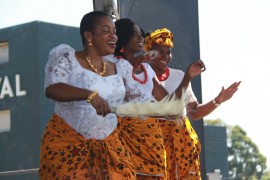 An innovative reading program using the Kindle is being used to boost literacy among young indigenous Australians. The Indigenous Reading Program (IRP) provides Kindle electronic readers to children, including some in the remotest parts of the country, to increase their access to books, encourage them to read and boost literacy.
An innovative reading program using the Kindle is being used to boost literacy among young indigenous Australians. The Indigenous Reading Program (IRP) provides Kindle electronic readers to children, including some in the remotest parts of the country, to increase their access to books, encourage them to read and boost literacy.
There are currently more than 100 indigenous youngsters, aged 10-15, in more than 50 schools across Australia enrolled in the program which was set up by Dan Billings, a specialist in student engagement and indigenous education within the federal Education Department.
Mr Billings says that the impact of receiving the Kindles can be quick and startling. The program is strongly incentive-based with a ”use it or lose it” policy and is implemented through schools with teachers selecting those students they think would benefit most. The results from the first intake of 20 children showed that they increased their weekly reading time by 154 per cent, reading fluency or speed increased by 51 per cent and reading comprehension scores were up by 43 per cent.
Limited funds restricted the number of children in the program during 2013, with more than three times that number applying but having to be turned down. However, the IRP is optimistic that it will be able to substantially increase the number of kids taking part in the program in 2014.
Professor Marcia Langton, Foundation Chair in Australian Indigenous Studies at the University of Melbourne, is the IRP’s first Patron. Professor Langton is one of Australia’s leading scholars and a passionate advocate for the wellbeing of Indigenous people. Education goes along with ”the right to a good life; something we all want,” she says. ”And it all starts with reading’’.
To find out more about the Indigenous Reading Project, which is volunteer run and not for profit, including how to sponsor a child, log on to http://www.irp.org.au/





Comments are closed.